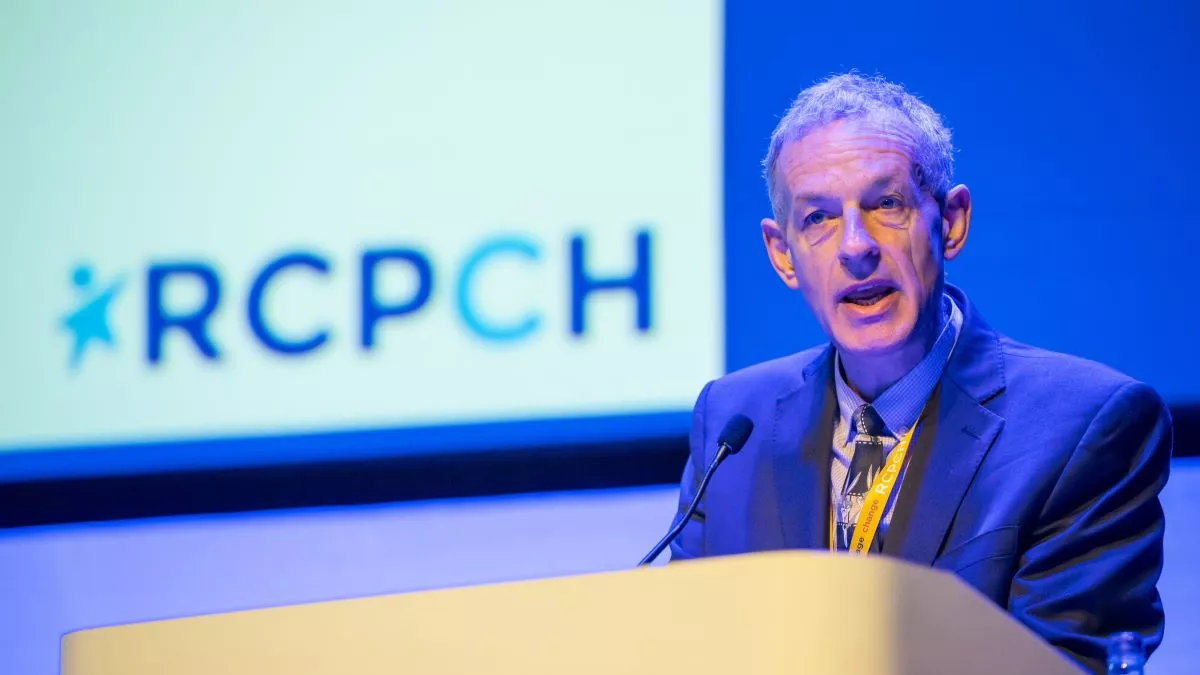
The summer is coming to an end in northwest Europe, which means that schools go back after the long holidays. Even though it is quite a few years since I left school, I still get a slight sense of loss when the summer holidays are over which is perhaps fueled by knowledge that the wards and clinics are going to get busy all of a sudden.
The “winter” respiratory virus season starts two weeks after schools go back. And as sure as night follows day, week 37 (beginning 8 September this year) is when things will get busy in England and Wales. Schools here in Scotland – and in Northern Ireland - went back in August and I have already had my first rhinovirus infection of the 25/26 school year!
When we look back at the school year 25/26 I hope the end of year report says “great to see lots of new joined up work across health and education”. School absence has been a big problem since the COVID-19 pandemic. Currently, 20% of children and young people are missing at least half a day’s school every two weeks in England. “What has this to do with me?” you may ask. School absence is often due to medical symptoms or medical appointments and is often the result of multiple social determinants. Non-therapeutic or holistic approaches may help both non-specific symptoms and poor school attendance.
When introduced, the single unique identifier will increase clinicians’ awareness of school absence, but in the meantime there is nothing stopping us asking “what was your child’s school attendance last year”? As part of the social history. I do a lot of my follow up clinic appointments via video consultation and my experience is that parents appreciate this over an in-person hospital appointment since they can reduce the time their child is taken out of school. Encouraging children to go back to school after a clinic appointment is also something to have in mind. Watch this space for more guidance on this coming soon from our policy team. Find out more and register for 25/26.
#WDYCD4U – Our new ‘Grand Round’ webinar series plus a recording on RSV immunisation for preterm infants
In July it was announced that single dose nirsevimab immunisation will replace the NHS use of monthly palivizumab injections for infants at high risk of severe respiratory syncytial virus (RSV) infection. This addresses the problem where very preterm infants are born before maternal RSV vaccination. Our webinar from just a couple of weeks ago presents the evidence behind the JCVI this advice and outlines the practical steps for implementation. You can watch the full recording of the webinar on RCPCH Learning.
Wider vaccinations news
As a College, our members are acutely aware of the resurgence of communicable disease such as measles. Published in July, our Commission on Immunisation policy report assessed how and why vaccine uptake has stalled or declined and made recommendations toward improvement. We will be working with governments to highlight these recommendations and improve vaccine access and uptake across the autumn and beyond.
In this light - I am encouraged by the move across the four nations of the UK to implement the JCVI advice to launch a routine childhood chickenpox vaccination schedule. From January next year, children across the UK will be offered a combined vaccine for measles, mumps, rubella and varicella (MMRV) as part of the routine infant vaccination schedule. This will mean much fewer days lost from nursery and school and fewer admissions with infective consequences of chickenpox. The Department of Health and Social Care purports that chickenpox in childhood results in an estimated £24 million in lost income and productivity every year in the UK. It is estimated that the rollout of the vaccine could save the NHS £15 million a year in treatment costs.
Our ambitious new partnership with NIHR looks at paediatric safety
The theme for this year’s WHO World Patient Safety Day will resonate with us all: safer care for every newborn and child. And on that note, I’m pleased to share news of our partnership between RCPCH and the NIHR Patient Safety Research Collaboration (PSRC) Network, SafetyNet, in which safety improvers, academics and representatives of families with lived experience will co-design priority questions for paediatric safety research and improvement. I’m confident this process will help identify where evidence can make the biggest difference.
Kickstarting the partnership is our World Patient Safety Day webinar next Wednesday, 17 September. Dr Peter Lachman and Dr Cally Feather will explore challenges in paediatric patient safety and how we respond to them – from medication safety and human factors. I encourage you to register for the free webinar and share with your teams, and to express your interest in the wider priority-setting partnership.
On a related note, you may have seen in the news that NHS England have announced the expansion of Martha's Rule to all acute hospitals in England. Read our response welcoming this news.
Summer in the devolved nations
The devolved parliaments may have been in recess over the summer, but our devolved nations teams have not.
In Scotland the main focus has been the development of the manifesto ahead of the 2026 Holyrood elections. Following consultation with Scottish members, five priority policy areas have been identified for action by the next Scottish Government: Reducing health inequalities; Leveraging data; Addressing the mental health crisis; Strengthening child health services and; Investing in the workforce. The team has been engaging with stakeholders to build momentum around these priorities - the manifesto will be launched later this month, keep an eye out for updates and next steps.
Following RCPCH Wales successful cross-party launch of the manifesto in early July in the Senedd – our team in Wales have been tasked with coordinating the Welsh Academy of Royal Colleges joint manifesto for the 2026 Senedd elections. This creates a unique opportunity for the College to advocate for children specifically with peer Colleges for maximum impact. Again, keep an eye on our comms channels for this publication this Autumn.
RCPCH Ireland have continued to engage with key stakeholders including meeting with the NI Public Health Agency in August to endorse and support the launch of the new Child Public Health framework for NI with a role in advising in implementation going forward.
New guidance on fertility and pregnancy loss in the workplace
Pregnancy, baby loss and fertility issues can impact on mental health, wellbeing and career progression. Our new guidance offers advice and support for those in the workplace experiencing pregnancy loss and/or fertility issues, as well as advice and guidance for their supervisors and managers about how to support them. Download the guidance document on our supporting training page.
Join our Academic Trainees Day this November
Are you a postgraduate paediatric trainee with research experience looking to build on your skills? Join our Academic Trainee Day on 6 November. This free online event offers an opportunity to deepen your understanding of the UK’s research infrastructure, explore research methodologies, and enhance your skills in collaboration and research tools. With expert-led sessions, interactive online workshops and networking opportunities, this event is designed to support you on your research journey. Register now for this year's event and you can catch up on content from last year’s event via RCPCH Learning.
Standards for a paediatric respiratory service in secondary care
Secondary care paediatric respiratory services manage a broad spectrum of conditions, with asthma forming the largest patient group. See a new set of standards produced by the British Paediatric Respiratory Society here.
Final call for workshop submissions and abstracts
The deadline is now fast approaching for workshop proposals for the RCPCH Conference 2026. Don’t miss your chance to showcase your work, share ideas, and shape the future of child health. We welcome workshop proposals from across healthcare and beyond, including patients, carers, students, voluntary sector and social care colleagues. Please submit your proposal by Sunday, 14 September and help shape the conversation.
For those who are working on your abstract for conference 2026? We are providing more time for you to complete your submission – the revised deadline to 23:59 Monday, 8 September to capture a wider range and breadth of topics. We look forward to seeing your contributions – you can make these here.
In case you missed it…
Today marks one year since the publication of our blueprint for child health services. It has been a year of significant impact. In case you missed it, listen to Dr Ronny Cheung, Officer for Health Services, and College staff discuss how we've used the report to secure national commitments to deliver care equitably for children. This includes in the 10 Year Health Plan which we've recently published a member briefing on and encourage you to read.
Steve
This message was emailed to all RCPCH members who are opted in to receive College updates / professional updates. You can update your contact preferences at any time - log in to your RCPCH online account, go to My account | Your contact preferences, then make sure you've ticked College updates / professional updates.










